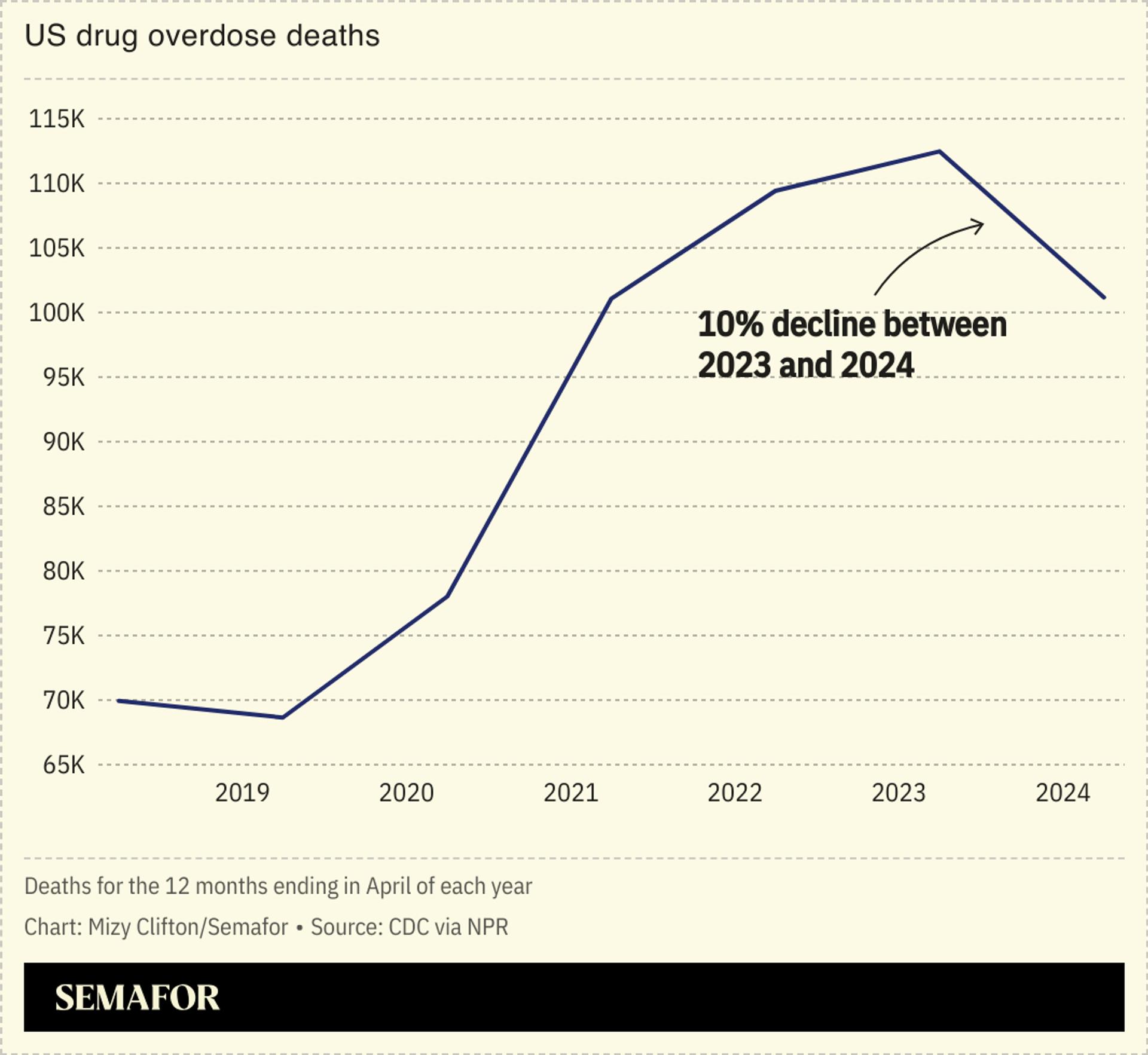The News
Overdose deaths in the US fell more than 10% year-on-year in the 12 months to April, new data showed.
The sharp fall bucks a decades-long trend of rising incidents of drug overdoses, driven by the mass availability of prescription opioids and illicit drugs, and in particular, illegal fentanyl.
In 1999, there were fewer than 20,000 overdose deaths recorded: More recently, that number has been well over 100,000. But deaths plateaued in 2023 — in the year up to April 2024, deaths numbered 101,000, down from 112,000 in the same period a year earlier, with fentanyl-related deaths showing the biggest decline.

SIGNALS
Treatment, law enforcement efforts could be causes for decline
The decline in drug fatalities is so sharp that experts speaking to NPR said they can’t pinpoint the reasons behind it, although they have some ideas: New treatments for addiction and law enforcement efforts to curb the availability of illegal fentanyl could both be drivers. The Biden administration has taken a “harm reduction” approach, The New York Times noted, perhaps most visible in the availability and promotion of over-the-counter drugs to reverse opioid overdoses, particularly Narcan nasal spray. Some people who use illicit fentanyl said they had learned to better manage an overdose, NPR reported, while medications to reverse overdoses are becoming more common in home and work first aid kits.
Fentanyl: A ‘mass murderer’ with a global footprint
Opioids are the leading cause of fatal drug overdoses in the US, data from the Center for Disease Control and Prevention shows, and fentanyl is the biggest culprit. The drug has turned into a “mass murderer,” El País wrote: Beyond its lethal power, its trade involves powerful criminal cartels in Mexico, with the drug’s ingredients sourced from factories in China and India. Fentanyl is lighter and easier to produce than other drugs, making it a “gold mine” for the cartels, France 24 wrote, perpetuating their other criminal activities.
Unclear connection between overdose deaths and drug criminalization
In the US, Oregon has been at the frontier of how best to manage illegal drug use: For four years, the state had decriminalized possession of small amounts of drugs like cocaine, heroin, and fentanyl. The experiment ended this month as the state officials grappled with overdose deaths and street crime. Oregon’s u-turn reflects a global trend, with countries like Japan and Thailand making similar changes, although the connection between decriminalization and rising fatalities is not proven: A 2023 study found no connection between the two.

